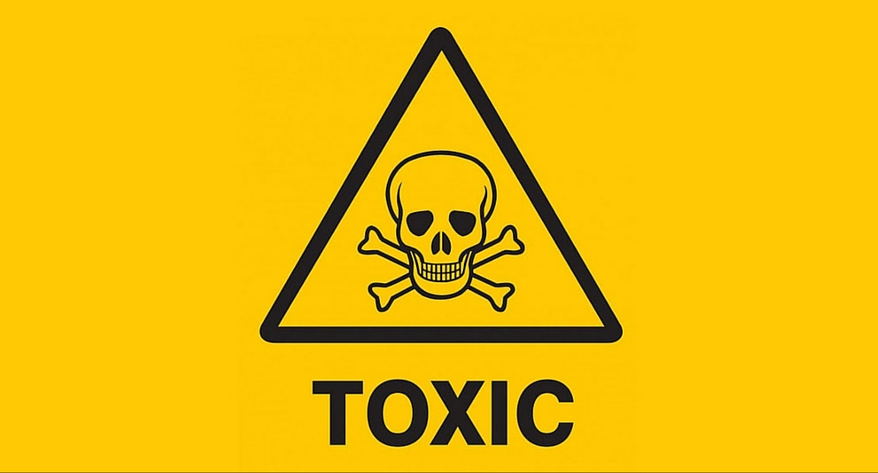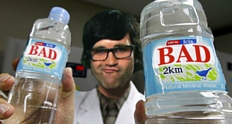There are a number of modern processes used by water manufacturers and water treatment plants around the world to demineralize the water we drink and cook with. Unfortunately, the health risks of humans and animals drinking demineralized water make these and other processes that strip minerals from our water do more harm than good.
Examples of these processes include: distillation, reverse osmosis, carbon filtration, ultrafiltration, ultraviolet filtration and electrodialysis.
Here's just a few of the more severe risks posed by drinking demineralized water on a regular basis:
Table of contents
- Increased Risk of Toxicity
- Poor Hydration
- Calcium and Magnesium Deficiencies
- The Health Risks of Cooking with Demineralized Water
- Are the Risks Worth it?
Increased Risk of Toxicity
For those who drink reverse osmosis water from the tap, this is one of the health risks of consuming demineralized water that might cause you to reexamine just what dangerous compounds might be in the water you're drinking. In fact, it's a risk to those who drink any water that's been stripped of its minerals; depending on how that water is stored and what it's come into contact with.
Demineralized water is unstable. Calcium and magnesium are “antitoxic” elements which help to protect water from contamination by foreign metals. These metals exist in all the pathways used to get water to us including metal and copper piping, solder joints, lead, bottling equipment, tanker trucks and more.
Calcium, and to a lesser extent magnesium, don't just act as an antitoxic when the water comes in contact with these metals on the way to our tap and bottled water. These minerals also act as a barrier at the cells in our intestines, where the toxins are absorbed into the bloodstream.
Poor Hydration
It's easy to assume that one glass of water is just like any other. Not so when it comes to demineralized water, including all beverages that contain them. In fact, bodybuilding professionals drink distilled water leading up to their competitions because it's well known among these athletes that demineralized water is among the most inexpensive and reliable diuretics available.
It's important to note that this is far from a good thing. The diuretic effect of drinking demineralized water can quickly lead to severe electrolyte imbalances in the body.
This is due to a couple of factors:
- Demineralized water increases urine output, effectively squeezing water out of places in the body where it should stay.
- The lack of calcium and magnesium in demineralized water will not only hamper physical performance, but can lead to far-reaching health risks including heart malfunctions and irreversible heart disease.
Signs of mild or moderate hydration can be hard to spot until a hospital visit becomes necessary, making this among the worst immediate health risks of drinking demineralized water.
Calcium and Magnesium Deficiencies
As one could guess, “demineralized” means that all minerals have been stripped away from the water. Our body absorbs these and other trace minerals found naturally in water more easily than from food sources.
Calcium is a neurotransmitter that relays vital information to every cell in our body. It calms our nervous system to help prevent anxiety. Calcium is one of the elements that causes our heart and other muscles to contract on demand.
Magnesium has more than 300 jobs in the body including glycolysis, ATP metabolism, transport of elements such as sodium, potassium, and calcium through membranes, synthesis of proteins and nucleic acids, neuromuscular excitability and muscle contraction.
Deficiencies in either mineral can be unpleasant in the short term and lead to more serious problems like heart disease, brittle bones and teeth, muscle atrophy, nerve damage and increased signs of aging throughout the body.
The Health Risks of Cooking with Demineralized Water
To make matters worse, the health risks of cooking with demineralized water are even worse for causing a number of different mineral deficiencies in the human diet. A number of laboratory-based tests over the years have proved that using water with the mineral content removed to cook with also causes massive losses to mineral content of the food being prepared.
Here are just a few vital statistics about how demineralized water affects the food you cook it with:
- 60% reduction in calcium and magnesium content.
- 66% reduction in copper content.
- 70% reduction in manganese content.
- 86% reduction in cobalt content.
This problem can present a big issue for the health and welfare of people living in homes with reverse osmosis filtration systems installed, or in countries where distilled water is distributed due to shortages of potable water.
Are the Risks Worth it?
We at One Water don't think so. As you've learned, many so-called “purified” water sources are anything but. There's nothing pure about taking critical nutritional elements out of our water before drinking it. None whatsoever.
The health risks that come of drinking demineralized water are very real. Next time you reach for a bottle of water or put a glass up to the tap, make sure that water hasn't been altered to the point it's actually more dangerous for your health than it is beneficial.
Enjoyed reading this post? Read more interesting posts from our blog.







